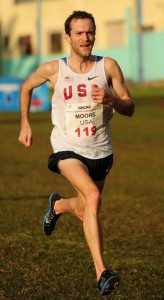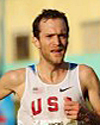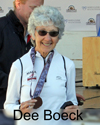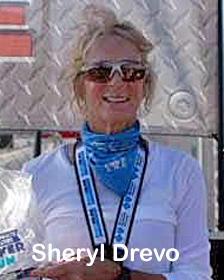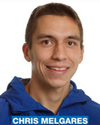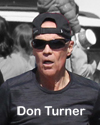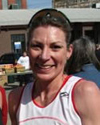The 5K was the most commonly run distance in 2019 with 56 races held on courses certified by USA Track & Field for which we found results, an increase of three from the year before. Seventy-five races were held at all other standard distances from one mile to 100 miles.
After the 5K, the most popular distance was the 10K with 21 races followed by the half-marathon with 20, an increase of two 10Ks and three half-marathons.
Once again, there were no races at 12K and 15K, both of which are standard distances recognized by USA Track & Field and World Masters Athletics for record purposes.
The 811 8K in Wichita was the only race at that distance, and the Urban ICT 25K, a night race in Wichita, held a highly successful second running in 2019. (The 25K is rarely run, but the USATF national championship is scheduled for Grand Rapids, Mich., in May.)
The state's only two 10-mile races continued in 2019, Lake Atwood (the oldest continuously run race in Kansas, which held its 48th edition, and the Wichita Turkey Trot, with 34 consecutive runnings through 2019. We hope that runners will continue to support these two venerable races.
We hope that race directors will consider combining a race at one of the less commonly run distances – 8K, 12K, 15K, 10 miles, 25K -- along with the usual 5K. (Better yet, replace the 5K with a one-mile, two-mile, or four-mile race.) The less commonly run distances provide runners a better opportunity to qualify for the state records list as well as a different racing experience from just another 5K.
As we did last year, we recommend the Urban ICT run in Wichita. This is a night race, mostly along a scenic river path, with race distances of 5K, 10K, 25K, 50K, and 50 miles, all certified, on one loop/out-and-back course. Most such courses lend themselves to a longer race and a shorter race, run separately or together thanks to modern timing technology.
In 2019, there were 84 separate running events held on certified courses with a total of 131 races, an increase of three events and seven races from the previous year.
The Wichita area remains the state's race center, with 25 events held on certified courses compared with 16 in suburban Kansas City (Kansas side), nine in Topeka, and six in Manhattan. No other city had as many as five.
For 2020, we have again revised many age-group standards for the 10K, half-marathon, and marathon to eliminate the Kansas Additions category. The Kansas Additions list was established many years ago as a way to recognize local runners at a time when relatively few Kansas runners met the qualifying standards. That is no longer the case, thanks to the growth in competitive female and older runners.
The revised standards are noted by the words “2020 REVISION” at the top of the age-group results lists.
Our standards are based on the age-grading formulas set by World Masters Athletics, which in turn are based on world-best times for each age group. Unfortunately, many runners who previously qualified no longer meet the current standards.
For now, we have retained Kansas Adds lists for the 12K and 15K distances, which currently have no competitive events and relatively few qualifying runners. Races at these distances may provide a better opportunity to qualify for the state Honor Roll.
Thanks to Trevor Darmstetter and his colleagues, there are a number of certified ultradistance events, which are among the very few certified ultras in the country. These races include the Prairie Spirit Trail ultras in the spring, the Honey Badger 100-mile in the summer, and the Kansas Rails-to-Trails runs in the fall. The Kansas Ultrarunners 6/12/24-hour race will again be held on an uncertified course in 2020. These were previously the state’s only certified races with standard time limits.
We repeat our request from last year that runners seek out races held on certified courses. Certification by USA Track & Field is often an indication that the race director is more likely to have taken runners’ needs and interests into consideration.
We ask race directors to provide hometowns and exact ages for all runners in order to recognize state honor roll qualifiers. We also encourage race directors who are not themselves experienced runners to seek assistance from local running clubs when planning events.
Dick Lipsey, Steve Riley, and Gene Wee
